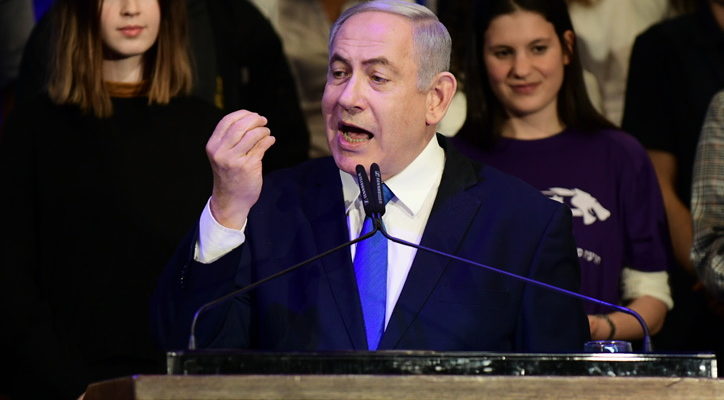Netanyahu defended his right to request immunity from prosecution and said he will reveal his decision in the next two days.
By David Isaac, World Israel News
“Democracy is the sovereignty of the people. Demo… Kratia. Demo is the people, Kratia is the sovereign,” Prime Minister Benjamin Netanyahu said to a crowd of supporters at the Dan Panorama hotel on the evening of Dec. 29 to celebrate the eighth and last night of Chanukah.
“In Hebrew, as in all languages, it is the rule of the people. Only the nation will decide who will lead it, and no one else,” he said.
Netanyahu was directing his remarks at Israel’s Supreme Court, which will hear a petition on Tuesday concerning his fitness to lead with three indictments hanging over his head for fraud, breach of trust and bribery.
The court has received criticism for weighing in on the matter at all, as Israeli law is clear – a prime minister can govern under indictment. Only after conviction must the prime minister step down.
The critics point to the court’s latest move as another example of a runaway judicial system which considers everything justiciable. Matan Peleg, CEO of Im Tirtzu, a pro-Zionist NGO, said on Israel’s Channel 20 on Monday evening that the court has reached the point where it is now “judging the future” – sitting in on a case dealing with a possible Netanyahu victory before it has even happened.
Netanyahu also said at the Monday evening event regarding a bid for immunity from prosecution, “I will reveal my decision in the next two days: Immunity is not against democracy. Immunity is the cornerstone of democracy.”
Simcha Rothman of the Israeli Movement for Governability and Democracy (
“If you let unelected and unaccountable officials prosecute the elected officials whenever they want, without being checked by the parliament, the representatives will be afraid to criticize those powerful entities.
“That is why in the U.S. you have the impeachment process and you can’t fire a president in any other way.
“That is why most democracies have some kind of parliamentary immunity.
“And this is why in Israel the law specifically allows for the Knesset to give immunity if the indictment process and the trial will hurt the representation of the public or parts thereof.”




